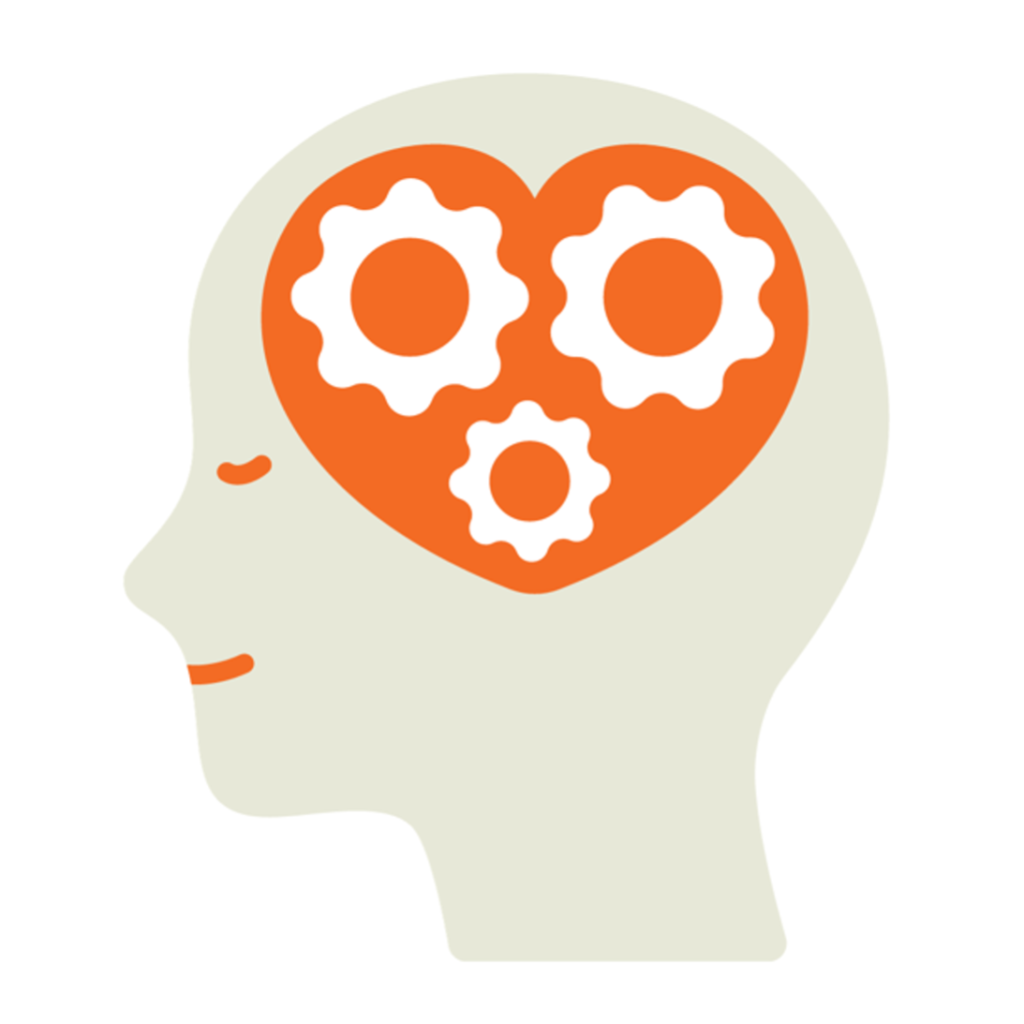Life is an unpredictable adventure filled with highs and lows. For young people, adolescence can be a turbulent developmental period characterised by significant social, physical, and neurobiological changes. These changes can produce stress, contributing to poor mental health and heightening young people’s risk of psychological disorders.
Therefore, an adolescent’s ability to manage this challenging period is vital. The ability to bounce back from adversity (difficult times) and cope with life’s ebbs and flows is a critical skill that can help adolescents weather the storms that come their way. This critical skill is known as psychological resilience, and it plays a pivotal role in overall well-being and mental health.
What is Resilience?
Resilience refers to the ability to adapt and thrive in the face of adversity, trauma, or significant stress. Resilience can enable young people to recover from setbacks, cope with life’s challenges, and stay strong even when things are tough.
Resilience does not mean that young people will not experience storms or never fail, but rather resilience represents their ability get back up and keep going, even after they’ve faced difficult times or setbacks.

Benefits of Resilience
A first step in helping your young person develop resilience, may simply involve teaching your young person the benefits of resilience, of which there are many!
1. Resilience helps us to cope with difficult times.
Firstly, resilience has been shown to help young people cope effectively with adversity. Life brings all sorts of challenges, from personal setbacks to big global crises. For young people, these challenges might be things like feeling left out, being bullied, school stress, body image concerns, or arguments with friends or family. Those who are resilient use their own strengths and positive qualities like self-belief, hope, and optimism to navigate these challenges, processing their emotions, adapting to change, and finding solutions.
2. Resilience Promotes Mental Health
Maintaining our mental health is essential, as research indicates that good mental health is associated with better physical health, improved life satisfaction, and a longer life span. Resilience is closely linked to well-being and mental health, as it helps individuals manage stress, anxiety, and depression. Research suggests that individuals who are resilient often have better mental health as they are better able to regulate their emotions, avoid becoming overwhelmed by negative feelings, and seek help when needed. Throughout adolescence, the brain, body, and social landscapes of teens are significantly changing, heightening their vulnerability to mental health problems and distress. Therefore, by developing and nurturing resilience, young people can enhance their mental health and decrease their risk of psychological disorders, helping them to successfully navigate this turbulent developmental period.
3. Resilience builds Confidence and Self-Esteem
Resilience is closely associated with believing in what we can do and feeling good about ourselves. When young people face and overcome challenges, their confidence in their abilities and sense of self-worth can grow. This can help them to act more confidently and take charge, making it easier to try new things and set goals.
4. Resilience Strengthens Relationships
Resilience isn’t just an individual trait; it also has a profound impact on our relationships with others. People who are resilient tend to be better communicators, more empathetic, and more adaptable, making them more supportive and understanding partners, friends, and team members. By nurturing resilience, we can help our young people to build and sustain healthier and more meaningful relationships.
5. Resilience Aids in Navigating Uncertainty
In a world that’s always changing, uncertaintly is part of life. This uncertainty may be magnified for adolescents, who are exploring new environments and responsibilities with more freedom than ever before. They’re starting to rely less on their parents/ caregivers, trying out new jobs, relationships, friendship circles, and exploring who they are. Resilience is like their guide through all this uncertaintly. It helps them handle these new expereinces and the unpredictability of life. When young people are resilient, they can adapt to new circumstances, make decisions with confidence, and maintain a sense of control over their lives, even when faced with unknown challenges.
Conclusion
In a world filled with uncertainty, fostering resilience in young people is a gift that will serve them throughout their lives. As a parent, caregiver, and mentor, your guidance and support are instrumental in helping them develop this life skill. By understanding what resilience is and why it’s important, you can play a vital role in preparing the next generation to face life’s challenges with confidence, adaptability and strength.
If you would like to learn more about how to help your young person foster resilience, click here.
References
Arslan, G. (2019). Mediating role of the self–esteem and resilience in the association between social exclusion and life satisfaction among adolescents. Personality and Individual Differences, 151, 109514–. https://doi.org/10.1016/j.paid.2019.109514
Gong, Y., Shi, J., Ding, H., Zhang, M., Kang, C., Wang, K., Yu, Y., Wei, J., Wang, S., Shao, N., & Han, J. (2020). Personality traits and depressive symptoms: The moderating and mediating effects of resilience in Chinese adolescents. Journal of Affective Disorders, 265, 611–617. https://doi.org/10.1016/j.jad.2019.11.102
Hall, A., Perez, A., West, X., Brown, M., Kim, E., Salih, Z., & Aronoff, S. (2021). The Association of Adverse Childhood Experiences and Resilience With Health Outcomes in Adolescents: An Observational Study. Global Pediatric Health, 8, 2333794X20982433–2333794X20982433.
https://doi.org/10.1177/2333794X20982433
Konaszewski, K., Niesiobędzka, M., & Surzykiewicz, J. (2021). Resilience and mental health among juveniles: Role of strategies for coping with stress. Health and Quality of Life Outcomes, 19(1), 58–58. https://doi.org/10.1186/s12955-021-01701-3
Lee, T. S.-H., Wu, Y.-J., Chao, E., Chang, C.-W., Hwang, K.-S., & Wu, W.-C. (2021). Resilience as a mediator of interpersonal relationships and depressive symptoms amongst 10th to 12th grade students. Journal of Affective Disorders, 278, 107–113. https://doi.org/10.1016/j.jad.2020.09.033
Liew, J., Cao, Q., Hughes, J. N., & Deutz, M. H. F. (2018). Academic resilience despite early academic adversity: A three-wave longitudinal study on regulation-related resiliance, interpersonal relationships, and achievement in first to third grade. Early Education and Development, 29(5), 762–779. https://doi.org/10.1080/10409289.2018.1429766
Liu, Q., Jiang, M., Li, S., & Yang, Y. (2021). Social support, resilience, and self-esteem protect against common mental health problems in early adolescence: A nonrecursive analysis from a two-year longitudinal study. Medicine (Baltimore), 100(4), e24334– e24334. https://doi.org/10.1097/MD.0000000000024334
Lombardo, P., Jones, W., Wang, L., Shen, X., & Goldner, E. M. (2018). The fundamental association between mental health and life satisfaction: Results from successive waves of a Canadian national survey. BMC Public Health, 18(1), 342–342. https://doi.org/10.1186/s12889-018-5235-x
Martinsone, B., Stokenberga, I., Damberga, I., Supe, I., Simões, C., Lebre, P., Canha, L., Santos, M., Santos, A. C., Fonseca, A. M., Santos, D., Gaspar de Matos, M., Conte, E., Agliati, A., Cavioni, V., Gandellini, S., Grazzani, I., Ornaghi, V., & Camilleri, L. (2022). Adolescent social emotional skills, resilience and behavioral problems during the COVID-19 pandemic: A longitudinal study in three European countries. Frontiers in Psychiatry, 13, 942692–942692. https://doi.org/10.3389/fpsyt.2022.942692
Otto, C., Reiss, F., Voss, C., Wüstner, A., Meyrose, A.-K., Hölling, H., & Ravens-Sieberer, U. (2021). Mental health and well-being from childhood to adulthood: design, methods and results of the 11-year follow-up of the BELLA study. European Child & Adolescent Psychiatry, 30(10), 1559–1577. https://doi.org/10.1007/s00787-020-01630-4
Plana‐Ripoll, O., Musliner, K. L., Dalsgaard, S., Momen, N. C., Weye, N., Christensen, M. K., Agerbo, E., Iburg, K. M., Laursen, T. M., Mortensen, P. B., Pedersen, C. B., Petersen, L. V., Santomauro, D. F., Vilhjálmsson, B. J., Whiteford, H. A., & McGrath, J. J. (2020). Nature and prevalence of combinations of mental disorders and their association with excess mortality in a population‐based cohort study. World Psychiatry, 19(3), 339–349. https://doi.org/10.1002/wps.20802
Sagone, E., De Caroli, M. E., Falanga, R., & Indiana, M. L. (2020). Resilience and perceived self-efficacy in life skills from early to late adolescence. International Journal of Adolescence and Youth, 25(1), 882–890. https://doi.org/10.1080/02673843.2020.1771599


